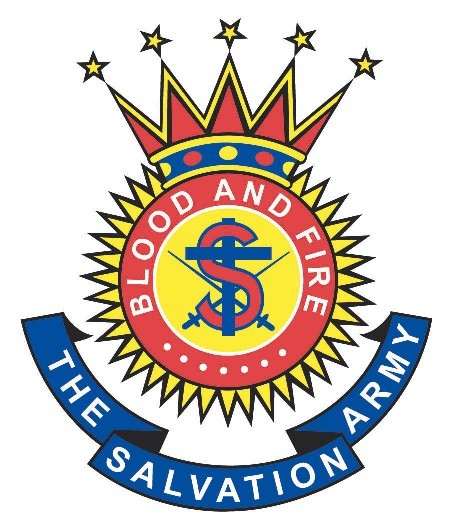The Salvation Army stands as a vibrant testament to what it means to live out the Christian faith in actionable and profound ways. Founded in 1865 by William Booth in London, this organization originated as an evangelical movement aimed at transforming the lives of the impoverished and destitute. Over time, it has evolved into a global entity embodying both a church and a service organization, dedicated to ameliorating the plight of the marginalized and fostering spiritual rejuvenation among communities.
At its core, the Salvation Army is rooted in the principles of Christianity. Its ethos is encapsulated within the doctrine of the “Army,” a military metaphor that symbolizes the organized struggle against social evils. This terminology serves not merely as a branding facet but embodies a deeper philosophy of activism and discipline in the face of adversity. Members of the Salvation Army, affectionately known as “soldiers,” are charged with the mission of spreading the Gospel while simultaneously addressing the social injustices pervasive in society. This dual commitment to faith and works resonates deeply with the Biblical injunction found in the Book of James, which articulates that faith without works is dead.
The organizational structure of the Salvation Army mirrors that of a church in many respects, including its sacraments, worship practices, and community evangelism. However, what truly distinguishes it is its unwavering commitment to service. Salvation Army locations across the globe offer various services, from emergency relief and disaster response to long-term recovery programs and social welfare initiatives. Many people often wonder why an organization founded on spiritual precepts would delve so deeply into social service. The answer lies in the intrinsic belief that the spiritual and physical needs of humanity are inextricably linked.
To elucidate, let us consider how the Salvation Army addresses practical and spiritual poverty in tandem. The organization provides food aid, shelters for the homeless, rehabilitation services for substance abusers, and educational programs for youth, among other initiatives. This comprehensive approach to service fosters a sense of community, enabling individuals to reunite with their dignity and self-respect. However, alongside these humanitarian efforts, the Army remains resolute in its mission to minister spiritually. Worship services and community outreach maintain a constant focus on nurturing a personal relationship with Christ, enhancing both individual faith and communal solidarity.
Fascination with the Salvation Army often stems from its unique ability to intertwine faith and action with an undeniable urgency. One frequently observed phenomenon is its capacity to mobilize volunteers and resources in times of crisis. During natural disasters or public emergencies, the Army’s presence is both swift and impactful. This propensity for immediate action draws admiration and curiosity. The observation raises significant questions: What motivates individuals to engage so fervently in humanitarian efforts? What compels organizations like the Salvation Army to be at the forefront of crisis response?
These inquiries expose the theological underpinnings that fuel such commitment. Many volunteers and workers within the Salvation Army are motivated not just by a sense of social responsibility but by a desire to reflect the love of Christ in tangible ways. The Christian perspective propounds that love should be manifest beyond the walls of the church. This perspective invites believers to view human need as an opportunity for divine engagement. Such theological conviction enriches the experience for both the giver and the receiver – acts of service become avenues through which individuals encounter grace and transformation.
The cultivation of a community-oriented mindset is another striking characteristic of the Salvation Army. Not merely seeking to address immediate needs, the organization also invests in systemic change through advocacy initiatives. This multifaceted focus suggests that the Salvation Army perceives its mission as not only a reactive measure but also as a proactive stance against injustice. The organization’s policy positions on matters such as poverty alleviation, homelessness, and social equity highlight its commitment to reshaping societal structures that perpetuate suffering. It embodies a profoundly nuanced understanding of salvation as a comprehensive, holistic experience rather than a mere theological concept.
Moreover, the cultural appeal of the Salvation Army is noteworthy. The organization navigates the complexities of contemporary society while remaining anchored to its historical roots. This balancing act, which manages to encapsulate both traditional and modern elements, attracts a diverse demographic, from lifelong Christians to secular individuals seeking meaningful engagement with social issues. The incorporation of music, community events, and engaging worship styles helps to create an inclusive atmosphere that resonates widely. This unique cultural positioning allows the organization to transcend religious boundaries, inviting individuals of various backgrounds to participate in the collective mission of service.
In conclusion, the Salvation Army represents far more than merely a charitable organization. It embodies a holistic Christian response to a world replete with suffering and inequity. By synergizing faith with action, it challenges the prevailing notion that spirituality is a solitary affair disconnected from the realities of human experience. The organization’s commitment to serving humanity while simultaneously addressing its spiritual needs invites all to witness the profound intersection of divine love and social justice. This harmony of purpose continues to inspire fascination, challenging adherents to consider their own roles within the broader tapestry of faith, service, and community. The story of the Salvation Army is not just one of charity; it is a clarion call to embody the principles espoused by Christ: to serve, to love, and to uplift in solidarity with those in need.



